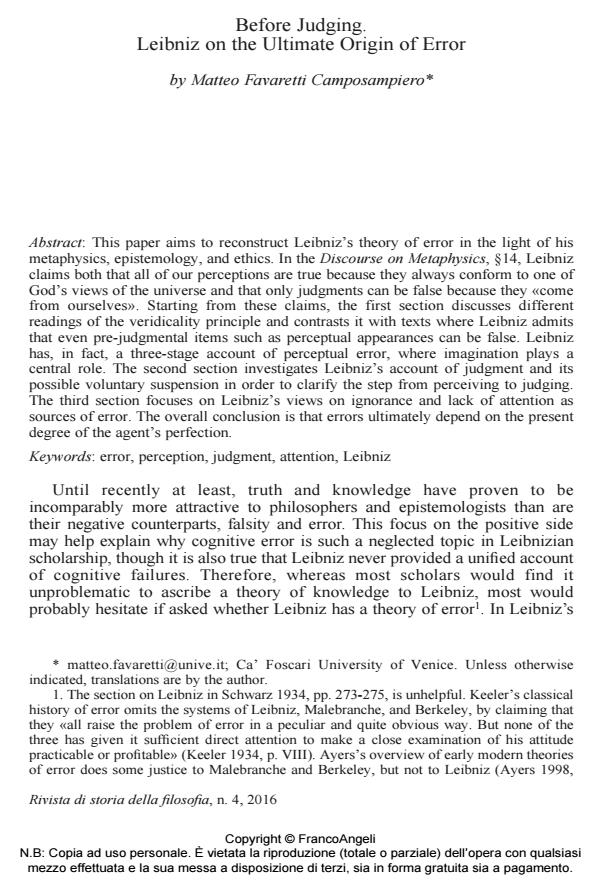Before Judging. Leibniz on the Ultimate Origin of Error
Journal title RIVISTA DI STORIA DELLA FILOSOFIA
Author/s Matteo Favaretti Camposampiero
Publishing Year 2016 Issue 2016/4
Language English Pages 0 P. 727-744 File size 64 KB
DOI 10.3280/SF2016-004011
DOI is like a bar code for intellectual property: to have more infomation
click here
Below, you can see the article first page
If you want to buy this article in PDF format, you can do it, following the instructions to buy download credits

FrancoAngeli is member of Publishers International Linking Association, Inc (PILA), a not-for-profit association which run the CrossRef service enabling links to and from online scholarly content.
This paper aims to reconstruct Leibniz’s theory of error in the light of his metaphysics, epistemology, and ethics. In the Discourse on Metaphysics, §14, Leibniz claims both that all of our perceptions are true because they always conform to one of God’s views of the universe and that only judgments can be false because they «come from ourselves». Starting from these claims, the first section discusses different readings of the veridicality principle and contrasts it with texts where Leibniz admits that even pre-judgmental items such as perceptual appearances can be false. Leibniz has, in fact, a three-stage account of perceptual error, where imagination plays a central role. The second section investigates Leibniz’s account of judgment and its possible voluntary suspension in order to clarify the step from perceiving to judging. The third section focuses on Leibniz’s views on ignorance and lack of attention as sources of error. The overall conclusion is that errors ultimately depend on the present degree of the agent’s perfection.
Keywords: Error, perception, judgment, attention, Leibniz
Matteo Favaretti Camposampiero, Before Judging. Leibniz on the Ultimate Origin of Error in "RIVISTA DI STORIA DELLA FILOSOFIA" 4/2016, pp 727-744, DOI: 10.3280/SF2016-004011